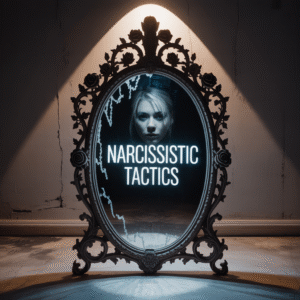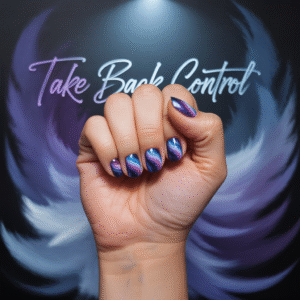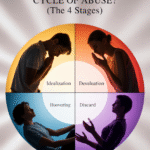Now Reading: Healing in Public: Why Telling Your Story Sets You Free
-
01
Healing in Public: Why Telling Your Story Sets You Free

Healing in Public: Why Telling Your Story Sets You Free
🗣️ When Silence Feels Safer — But Isn’t
Let’s be honest:
You’ve probably wanted to tell your story.
Not for revenge. Not for pity. But because holding it in feels like choking on your own truth.
And yet…
“What if they say I’m making it up?”
“What if no one believes me?”
“What if I sound bitter or broken?”
“What if it hurts too much to say it out loud?”
Here’s the reframe that changed everything for me:
You don’t tell your story to be believed. You tell it to be free.
This article is for the survivors ready to use their voice — online, offline, in therapy, in writing, in whispers or war cries — and why doing so is not just healing…
…it’s revolutionary.
🧠 Why Narcissistic Abuse Silences You
The narcissist doesn’t just harm you — they gaslight you into silence.
- They deny your reality
- They tell you it’s all in your head
- They threaten your reputation if you speak
- They weaponize your own emotions against you
- They convince others you’re the unstable one
So you stop talking.
You doubt your own memory.
You replay every argument like a courtroom transcript.
And eventually? You bury it.
But trauma doesn’t die in silence.
It festers.
🔓 The Power of Speaking Up (Even If Only to Yourself)
When you put your experience into words, you do two things:
- You validate your reality
- You give shape to the shapeless
That tangle of confusion, grief, fear, shame? It becomes language. And once you name it — you own it. It’s no longer owning you.
💥 What Happens When You Share Your Story
1.
You Step Out of the Fog
Naming the abuse gives it definition.
And once you define it, you stop internalizing it.
You go from:
“I’m crazy”
To:
“That was gaslighting. That was a manipulation tactic.”
Naming gives you distance. And from that distance? Power.
2.
You Break Isolation
Abuse thrives in isolation. Shame grows in silence.
Your story cracks the lie that you’re alone.
You say it — and someone else whispers: “Me too.”
That’s community. That’s clarity. That’s a lifeline.
3.
You Reclaim Your Narrative
The narcissist got their version out first. They always do.
They tell people you were the unstable one.
They shape how others see you.
And worst of all? They shape how you see you.
Telling your story — on your terms — takes that power back.
You go from character to author.
🛠️ How to Tell Your Story Safely (Without Re-Traumatizing Yourself)
1.
Choose Your Format
You don’t need a blog or a book deal. Telling your story can look like:
- Writing in a private journal
- Recording voice notes
- Sharing anonymously on survivor forums
- Speaking to a therapist or coach
- Posting on social media (if and when you’re ready)
- Submitting a survivor story to a platform like Abuse No More
There is no “right” way — only your way.
2.
Use the 3-Part Safety Frame
Before you speak, ask:
🔒 Is this safe for my nervous system?
🧠 Am I regulated enough to reflect, not relive?
🗣️ Am I sharing from healing, not proving?
If the answer to any of those is “no,” pause. Not forever — just until you’re ready.
3.
Don’t Overshare to Be Believed
You don’t owe the internet, your family, or your ex’s flying monkeys the worst details of your trauma.
Start with:
“Here’s what I went through.”
“Here’s how I’m healing.”
“Here’s what I’ve learned.”
“Here’s what I want others to know.”
Validation comes from within. Not from likes or comments.
4.
Expect Emotional Whiplash (And Have a Recovery Plan)
You might cry.
You might feel rage.
You might feel numb.
You might even regret it for a minute.
That’s normal.
That’s processing.
Your recovery kit:
- Comfort item (blanket, journal, pet, sauna wrap)
- Music that grounds you
- One trusted person you can call
- A self-written letter that says, “You’re okay. You’re allowed to tell the truth.”
📣 What If You Want to Go Public?
If you’re ready to share on a blog, video, podcast, or social media:
- Avoid using real names unless legally safe
- Don’t share details that could compromise your safety
- Be clear on your boundaries (“I won’t respond to comments defending my abuser”)
- Own your voice — you don’t need to be “perfectly healed” to be powerful
This isn’t about dragging anyone.
It’s about telling your truth — for yourself, and for others still stuck in the fog.
📓 Journal Prompt: Story Starter
Use this to explore your story at your pace:
1. What happened to me that I haven’t said out loud yet?
2. What do I wish someone had told me back then?
3. What have I survived that I now understand more clearly?
4. What do I want others to know about healing?
5. What does my voice sound like now — when it’s finally mine?
🎯 Final Word: Your Voice Is Your Victory
Survivors are often told to “just move on.”
But your story is not a burden. It’s a beacon.
You are not dramatic. You are documenting.
You are not broken. You are bearing witness.
You are not vengeful. You are validating your own existence.
Telling your story is not weakness. It’s legacy.
Because when you speak — someone else finds the strength to leave.
To heal.
To rise.
So speak it, write it, shout it, whisper it.
Your voice isn’t just powerful.
It’s sacred. 🔥
























